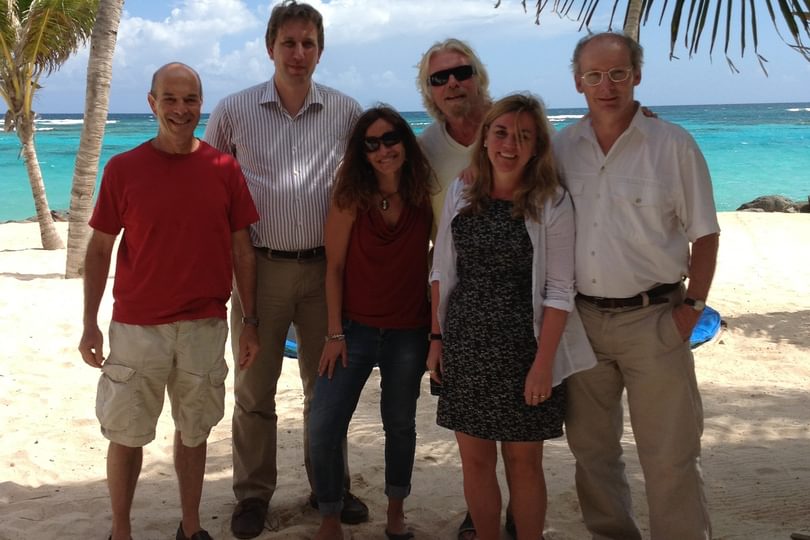
We have just spent a few very inspiring days at Necker Meets Oxford, one of Virgin Unite’s leadership gatherings.

We brought together some of our dear friends and supporters from the Unite community with a group of stellar academics from the Oxford Martin School, a group trying to find innovative, entrepreneurial solutions to the world's toughest challenges.
Led by the amazing Ian Goldin, who heads the Oxford Martin School and has spent decades tackling global issues at the World Bank and elsewhere, this year's meeting focused on Solutions for the Future of People and Planet. Ian kicked things off with a comprehensive overview of the issues people and planet face. "We live in the most extraordinary time in humanity's history," he said. "It lies within our power to overcome poverty, disease and other things." But Ian also understands what the obstacles are: "For the next 20 years, we are caught in a perfect storm of population growth, resource use and lack of political leadership at the local and global level."

I couldn't agree more, which is why it is part of Virgin Unite’s mission to stimulate new and innovative entrepreneurial approaches to weather this storm.
Ian brought an impressive team of Oxford scholars to Necker. Charles Godfray took us through the challenge of feeding a planet of 10 billion people by 2050, explaining that our current global food system is not sustainable and in dire need of “radical and profound change”.
Astronomer Chris Lintott, known to many as the new face of the BBC’s The Sky at Night, led an excursion into the depth of the known universe, highlighting a phenomenal crowdsourcing project he started in order to accelerate the classification of galaxies – the Galaxy Zoo. What began as a small project to get help from on online community of hobby astronomers, has since grown into a global crowdsourcing effort across several disciplines – the Zooniverse. Chris deserves additional credit for hauling his telescope to Necker for an evening of stargazing. We caught a good glimpse of Jupiter and its moons and even witnessed a flyby of the International Space Station!
Sonia Trigueros of the Oxford Nanotechnology Programme led us from the vast expanses of space to the microscopic and utterly fascinating world of nanotechnology, which promises radical advances for medicine, but also holds the potential to make our everyday lives a whole lot easier. I wouldn’t doubt for a second that nanotechnology creates huge entrepreneurial opportunities.
Finally, Kathy Willis joined us again to talk about an issue I care deeply about: how to preserve biodiversity in an increasingly crowded planet. Kathy, who chairs the Biodiversity Institute at Oxford, has been working on a remarkable project to globally map ecosystem services and biodiversity, so that businesses and others make better choices when choosing land for different purposes. Following Kathy’s presentation, she took the group on a fascinating biodiversity walk of Mosquito Island, just a short boat ride from Necker.
After four days of learning and debate, our guests left Necker inspired and stimulated. We couldn’t have asked for anything more - it was a great meeting of minds. What are your solutions for the future of people and planet? It’s always good to provoke more healthy debate.
Image(s) by Jack Brockway
This blog originally appeared on the Virgin.com website
This opinion piece reflects the views of the author, and does not necessarily reflect the position of the Oxford Martin School or the University of Oxford. Any errors or omissions are those of the author.